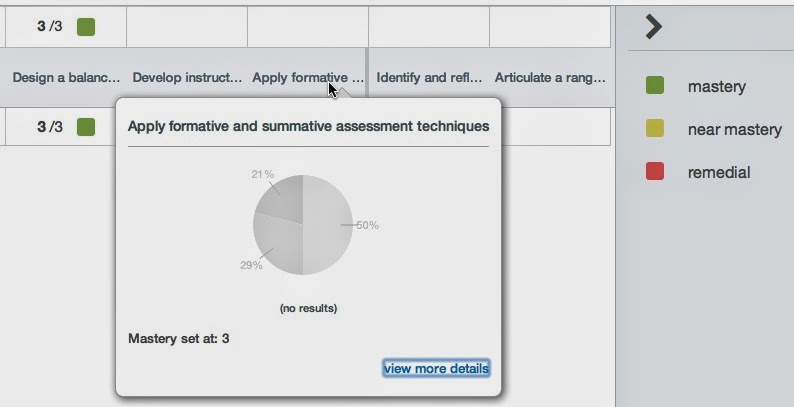This course was designed using a gamification approach, which refers to the use of game mechanics in non-game settings. Throughout the course, students will earn experience points (XPs) for completing tasks. As students earn XPs, these points will accumulate and enable students to earn badges to represent their learning. Upon completion of each quest, a badge will be awarded to each student. For each quest, three levels of badges are available: Explorer, Journeyman, and Master. These badges represent the amount of XPs earned by each student during a given quest. To earn a badge at a greater level of difficulty, students will have the opportunity to revise or repeat tasks.
Badges for Each Quest:
21-30 XPs = Master
11-20 XPs = Journeyman
0-10 XPs = Explorer
Badge for Digital Citizenship Quest
Grading Scale for Determining Final Course Grade:
240-300 XPs = A
180-239 XPs = B
120-179 XPs = C
60-119 XPs = D
0-59 XPs = F
At the beginning of the semester, all students will complete a course pre-assessment. The purpose of the pre-assessment is to provide formative information to the students and the instructor regarding students’ previous learning experiences and areas of expertise. Experience points (XPs) may be earned through the pre-assessment, as students demonstrate mastery of concepts and tools. The instructor will determine the amount of XPs earned (if any) by a given student based on performance on the pre-assessment. Students will have the opportunity to apply XPs toward specific tasks within quests based on their pre-assessment performance.
Along with using gamification techniques, I have also transitioned all of my courses to an outcomes-based grading system. Canvas makes it easy to integrate outcomes-based grading into course assignments by giving instructors the option of using the Learning Mastery gradebook instead of a traditional gradebook. Assignments and rubrics are aligned with course learning outcomes. My students and I will be able to track progress toward course outcomes, and grades will be meaningful for both me and my students. Below are the learning outcomes for one of my courses in Canvas.
Learning Mastery Gradebook in Canvas
I welcome your feedback on my first attempt at gamification and my shift toward outcomes-based grading. Feel free to leave a comment to let me know how you're using these methods in your courses.



This looks promising! I'm trying a similar method on a much less sophisticated scale, using Blackboard. It looks like Canvas is better suited for achievement-oriented outcomes. I'm convinced that competition with self (i.e. such as in gamification) will enhance learning. I'll be interested in following your project!
ReplyDelete